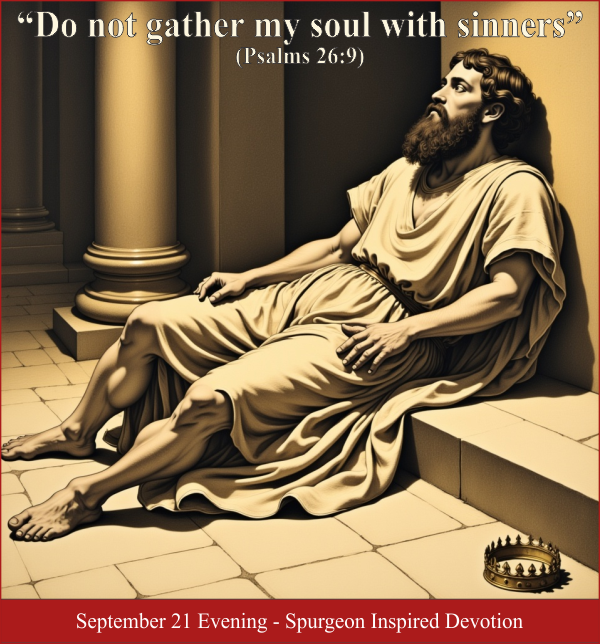“Do not gather my soul with sinners” (Psalms 26:9)
Saints sometimes have fear that perhaps they’ve fooled themselves, and they’re not really saved. David constantly examined himself.
His fear of falling away, although not virtuous, most likely sprung from holy anxiety, as he remembered past sin. Even a pardoned man will enquire, “What if my sins are remembered, and I’m removed from the Book of Life?” He might also look at his present unfruitfulness - so little grace, so little love, so little holiness, and looking forward to the future, he considers his weakness and the many temptations which beset him, and he fears that he may fall, and become a prey to the enemy.
David had a transparent relationship with God. He prayed, “examine me, O LORD, and prove me; Try my mind and my heart” (Psalms 26:2). His faith wasn’t the kind that avoids scrutiny. We should all pray, “search me, O God, and know my heart; Try me, and know my anxieties; And see if there is any wicked way in me, And lead me in the way everlasting” (Psalms 139:23–24).
There’s no substitute for unconditional surrender. If you’re not willing to obey Christ in all things, you have reason to doubt you’re saved. Common faith that you’re saved is not the same as saving faith in the Lord Jesus Christ. 90% of people who say the salvation prayer have no Biblical evidence of salvation. If you want to do just enough to “prove” you’re saved, “your heart is not right in the sight of God. Repent therefore of this your wickedness, and pray God if perhaps the thought of your heart may be forgiven you” (Acts 8:21-22).
Here’s the advice David gave to his son Solomon: “The Lord searches all hearts and understands all the intent of the thoughts. If you seek Him, He will be found by you” (1 Chronicles 28:9).
.
|


